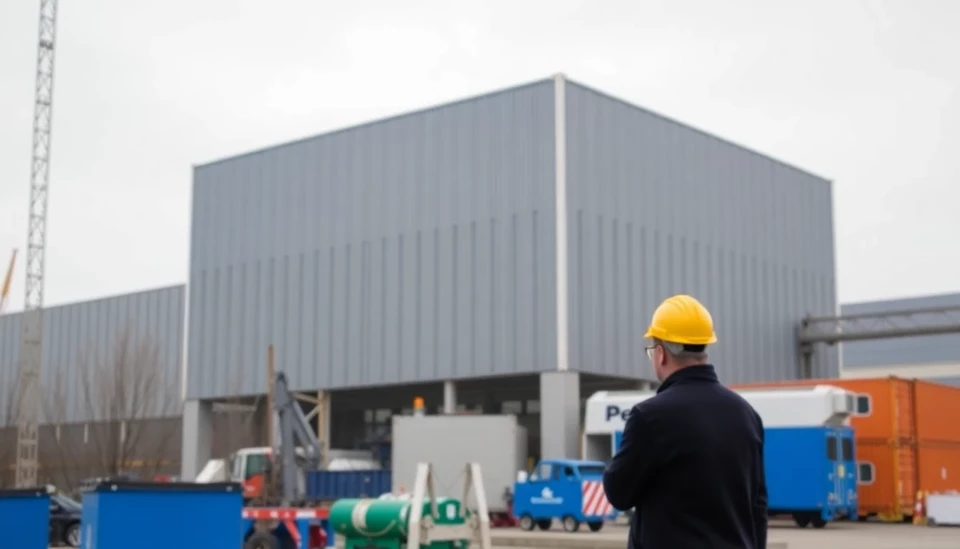
In a concerning development for the German economy, recent data indicates a significant decline in industrial output, heightening fears that the country’s economic recovery is not as robust as previously hoped. This downturn is attributed largely to ongoing uncertainties surrounding tariff threats, which are creating a climate of hesitation among manufacturers and businesses. Analysts note that these challenges could potentially hinder Germany's growth prospects in the near future.
The figures released by the Federal Statistical Office reveal that industrial production fell by 2.7% in September compared to the previous month. This drop surpasses analysts' forecasts for a modest decline of 1%. The decline in output is a stark contrast to earlier optimistic projections that expected the sector to rebound following a sluggish performance last year.
Particularly impacted are key industries such as manufacturing and construction. The production of machinery and equipment has been notably affected, with many companies reporting reduced orders and output levels. The concern is that persistent tariff threats, especially from international counterparts, are dissuading businesses from investing in new projects and expanding operations. This sentiment is compounded by global economic uncertainties and fluctuating demand for German exports.
As Germany plays a crucial role in the European economic landscape, the ramifications of its industrial output decline could extend beyond its borders. Economic analysts are closely monitoring these developments, citing risks that could reverberate throughout the European Union. The interplay of tariffs, geopolitical tensions, and evolving trade relationships fuels apprehension among experts who warn that any lingering slowdown could hamper recovery efforts, which have been further complicated by the residual effects of the pandemic.
Furthermore, government officials are under increasing pressure to devise strategies that would mitigate these threats. Economic policymakers are exploring various avenues, including potential negotiations to resolve tariff disputes while also incentivizing domestic production to bolster the economy. However, any effective response will require a balanced approach that can address the looming uncertainty while also maintaining competitiveness in global markets.
In this context, business leaders have expressed cautious optimism about future prospects, with calls for greater government support alongside strategic initiatives to stimulate growth. Nevertheless, a prevailing sentiment remains that unless these tariff-induced pressures are alleviated, substantial challenges will persist for the German industrial sector.
In summary, Germany’s industrial output slump is both a symptom of current economic anxieties and a warning signal for potential ongoing challenges. Stakeholders from various sectors eagerly await the government's next steps, as the pressure to restore confidence in both production and consumption mounts. At stake is the health of not just the national economy, but of the broader European financial landscape.
#Germany #IndustrialOutput #Economy #Tariffs #Manufacturing #EuropeanUnion #Trade #Geopolitics #EconomicGrowth
Author: Rachel Greene




